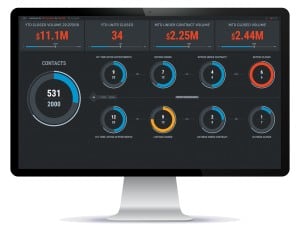In 2001, the New York Yankees had just barely competed in their fourth consecutive World Series. With their massive fan base living in Manhattan, ticket sales were as high as always - allowing baseball’s “evil empire” to continue steamrolling the competition by buying out all the best players with monster contracts.
Small market teams didn’t stand a chance in this game. Their low income made it impossible - One huge, yankee-style contract would wipe out their entire payroll. Going into the 2002 season, the small market Oakland Athletics had just barely lost three of their star players to big teams, left wondering (once again) how they were going to build a competitive team with a third of the capital to spend.
Seriously, the A’s payroll was capped at $40 million and the Yankees was capped at $125 million.
It was adapt or die for this small market team, so they started playing Moneyball. Basically, the computer nerds and baseball fanatics came up with an acquisition strategy that helped the A’s management find players that could fill the gaps in their roster at a lower price.
The A’s new religion was data, and they went all in by reading and applying the sacred texts - statistics.
Based on the analyst’s computer algorithm, teams were able to find out which acquisitions would be the most bang for their buck. Paying one shortstop 30 million dollars wouldn’t change their team, but if they could find the right nine players and pay them 3 million each, they would have a chance. They made choices purely based on statistics rather than perception. They took a magnifying glass to their current stats and found exactly which players they could buy with the limited resources they had to fill the gaps.
The numbers game worked. In the 2002, the Oakland A’s won a league leading 103 wins including a record win streak of twenty games. It was the best season the A’s had in decades. The leaders who played a role in the money ball season went on to lead many organizations to championships. Today, dozens of teams employ a statistician to look at the numbers the same way the A’s did. A book and a movie have been written about the underdogs who took on the system and won.
Dominate Your Space
Regardless of what level, industry, or type of sales you pertain to, you can bet that the majority of your competition is not playing moneyball.
This is especially true in real estate, but applies to every industry across the board. Salespeople in general simply aren’t dedicated enough to tracking their data. They don’t have an exact idea of what activities produce their results, and, without this understanding, any attempts by leadership to improve processes is a shot in the dark.
If leaders know exactly what their team is doing on a day to day basis, they can start to asses the problem. They can start to play moneyball. Rather than paying a consultant a chunk of money to come in and make a blind assessment and suggestion, leaders can inform themselves by analyzing the numbers. They can find the solutions that will give them the most bang for their buck, save money, and improve their processes in the most cost effective possible way. Moneyball is all about making decisions based on cold, hard evidence and sound logic.
NOTE: Wondering how well your team plays moneyball? Calculate your accountability score based on some simple questions below.
Four Easy Steps
Here are four easy steps to take a moneyball approach to sales.
1) You’ll need to track your numbers. Doing this manually will take forever, so get Sisu to do it for you. Seriously, for a few bucks a month it will pay for itself in spades.
2) Analyze Your Data. Look at who’s winning. What are your top salespeople doing? It’s not dumb luck. There is a part of their process that you can mimick and implement across your team. You can schedule trainings, get new tools, bring in a coach, etc. All of these activities will be effective because they are based on real data that is specific to your team.

Sisu Team dashboards give you quick insights into your real estate sales data
3) Continuously monitor and improve. We recommend making changes one at a time, so that you can monitor their effectiveness. If you throw too much at your team, chances are they won’t even do it and you won’t be able to monitor what’s working anyways. Make sure you find what works.
4) Make great habits. When you find what works, make it a habit. Build it into the culture of the organization. Teach the new guys this and help the old guys love it. This is how you build a great sales culture.
Some of the best advice I’ve ever heard for entrepreneurs and salespeople has to do with working in saturated markets.
Just because the market is saturated, doesn’t mean that those people are doing a good job. Most of them have been at it for a while and are just doing enough to slide by with a nice paycheck each month. Most don’t go above and beyond. If you want to be a great real estate agent, salesperson, business owner - anything! - you’ll do the hard things the competition isn’t willing to do. The steps I listed above are things that most teams aren’t willing to do. If you do them right, you’ll dominate.
It all starts with tracking the data.








.png)


